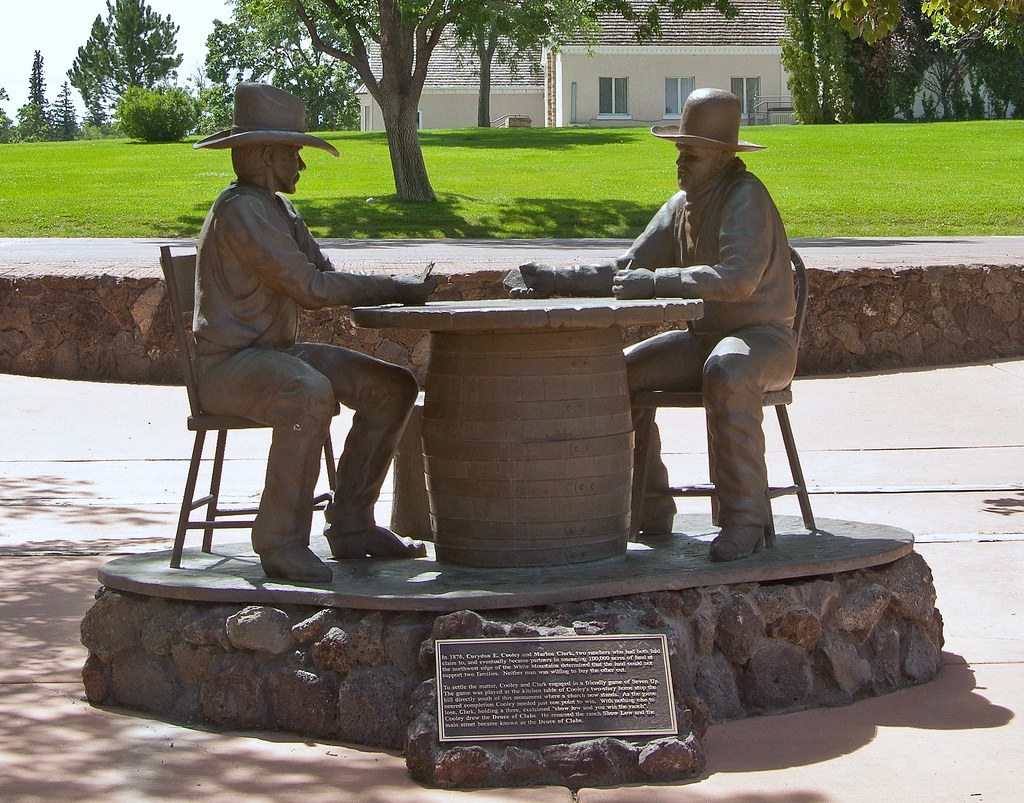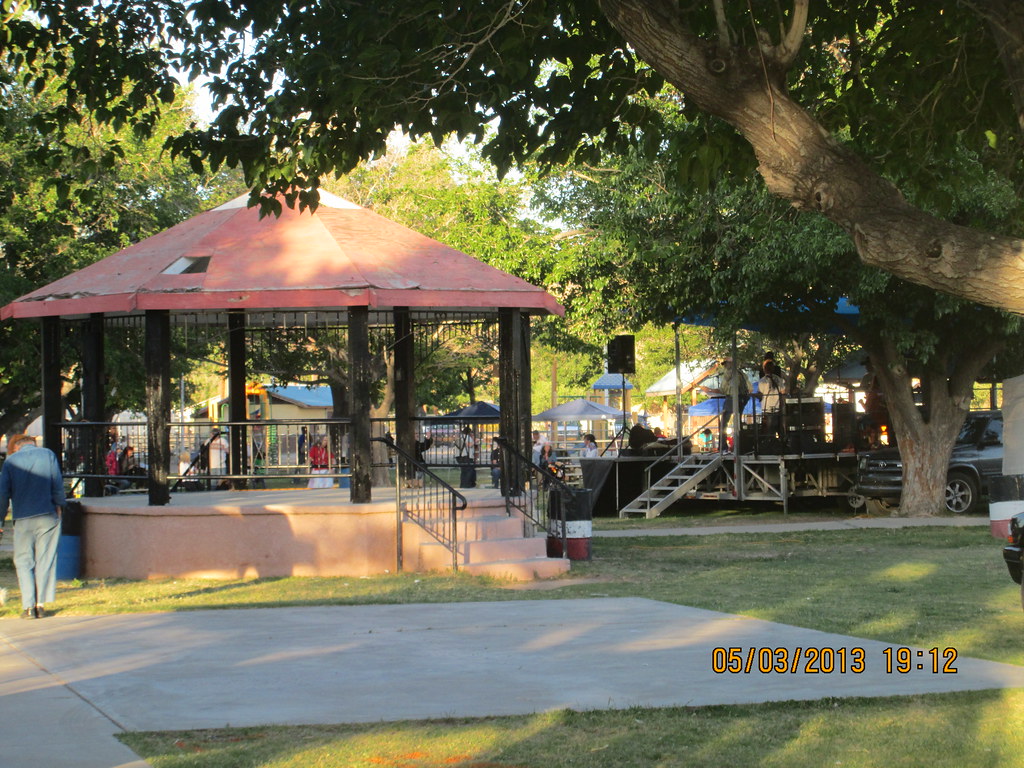Twelve Mile Circle felt like playing games. More to the point, I’d collected a few town names tied to games that I wanted to share. I did something similar awhile ago with the sport of Lawn Bowls, a particularly popular choice for names. Atlantic City also made the cut with Monopoly although the town inspired the game rather than the other way around.
Show Low, Arizona

Show Low got me thinking. I’d spotted the town in eastern Arizona’s Apache-Sitgreaves National Forest. I figured it hid an interesting story given its strange name and indeed it did. Two ranchers, Corydon Cooley and Marion Clark, owned a large property jointly in 1876. They discovered, however, that it wouldn’t support both of their families. Neither wanted to leave so they let fate pick the winner with a poker game. As the Town’s website explained,
“Show Low was named after a marathon poker game played between two early settlers. They decided there wasn’t enough room for both of them in the community and agreed to let a game of cards decide who was to get the 100,000 acre ranch and who was to move on. According to the story, one of them said, ‘If you can show low, you win.’ The other one turned up the deuce of clubs and replied, ‘show low it is’.”
Nothing could go lower than the deuce of clubs so the game ended. Cooley won. He renamed the ranch Show Low to commemorate his victory and the town later adopted it. That seemed fitting in the Old West where stories like those abounded. The town embraced its history too. They called their primary road, a segment of U.S. Route 60, Deuce of Clubs (map). Lots of local businesses used the name and the town logo featured an appropriate playing card.
Truth or Consequences, New Mexico

The map said Truth or Consequences although locals called it T or C (map). Either way, it definitely seemed like an odd name for a town. I thought I’d mentioned this one before, however it seemed that it never actually made it into a 12MC article. Loyal reader Peter did mention T or C in a comment about a year ago referring to its old name, Hot Springs. Well, Hot Springs certainly sounded normal, so what happened?
I supposed with a relatively common name like Hot Springs, the town wanted to try something a little bit more unusual. A radio program popular at the time, Truth or Consequences, offered a contest. Its host, Ralph Edwards, would broadcast the show’s 10th anniversary episode live from any town that would change its name to match the show. Hot Springs jumped at the chance and the broadcast took place on April 1, 1950. The town impressed Edwards so much that he returned every May for the next half-century for an Annual Fiesta. T or C returned the love, naming an auditorium and a park for Edwards.
Poker Flat and The Shores of Poker Flat, California

Bret Harte wrote colorful stories of the California Gold Rush in the second half of the 19th Century. He published one of his most famous short stories “The Outcasts of Poker Flat” in Overland Monthly magazine in 1869. Go ahead and read it. This shouldn’t take more than about ten minutes. I’ll wait for you until you get back.
A community called The Shores of Poker Flat claimed to be the inspiration for the story. It even included a Bret Harte Drive (map). However, evidence seemed to point to another Poker Flat found elsewhere in California (map). That one became a ghost town many decades ago.
You didn’t read the story, did you? Let me synopsize. A gold rush town wished to rid itself of negative influences. They hanged a couple of miscreants and exiled four others. The exiles left town, warned to stay away forever. So they trudged into the mountains and met a couple traveling in the opposite direction. Tired, the expanded group set camp in an abandoned cabin as it began to snow. They remained trapped for several days as provisions waned and stakes became increasingly desperate.
Then, one of the prime characters, the professional gambler John Oakhurst, was found dead at the end of the story. He’d committed suicide “with a Derringer by his side and a bullet in his heart.” He sat beneath a pine tree, with “the deuce of clubs pinned to the bark with a bowie-knife.”
There was that deuce of clubs again. He showed low, his luck ran out.

Leave a Reply